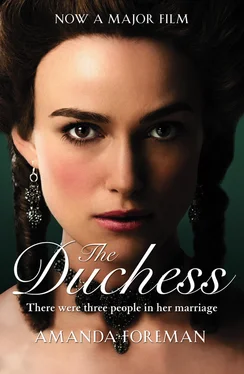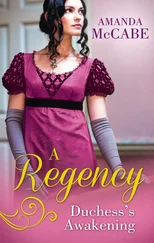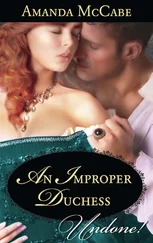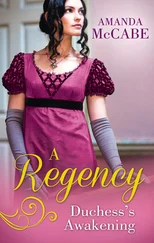George III refused to accept the Whigs en masse and insisted on a joint ministry between Lord Rockingham and the Earl of Shelburne, the leader of the old Chathamite faction whose sympathies lay more with the King than with the Whigs. The party accepted this bitter pill, hoping it might eventually be able to push Shelburne out. Having agreed the terms, the Whigs went to Devonshire House to celebrate. ‘I was at Devonshire House till about 4,’ wrote Selwyn to Lord Carlisle, ‘and then left most of the company there. All the new supposed Ministers were there except Lord Rockingham, who had probably other business, and perhaps with the King.’ 26 Georgiana threw a series of celebratory balls, each one lasting the whole night and part of the following day. The furniture downstairs was cleared out to make room for the crowds and the ceilings decorated with thick festoons of roses. Keeping the ten Van Dycks in the hall, Georgiana transformed all the other rooms into a fantasy with painted scenery and strategically hung mirrors. Public excitement about the balls grew, and on one night the managers of the Opera House shortened the last act to enable the Prince of Wales to leave on time. The next day the Morning Herald and Daily Advertiser , which had devoted several columns to the Devonshire ‘galas’, reported, ‘none was ever more admired than the minuets at the Devonshire Gala, the Prince of Wales and the Duchess of Devonshire in particular’. 27
Having so long avoided St James’s, the Whigs now trooped into court to pay their respects. The King was too disgusted to hold a proper Drawing Room and sat glumly next to Queen Charlotte, while Georgiana and her friends made polite conversation with the Prince of Wales and the Duke of Cumberland. 28 Tradition demanded that the King recognize the new ministers with the awards of office, and he grudgingly offered the garter to senior Whigs. They accepted with a shameless delight which disgusted Nathaniel Wraxall. He watched with embarrassment as ‘The Duke of Devonshire … advanced up to the Sovereign, with his phlegmatic, cold, awkward air, like a clown. Lord Shelburne came forward, bowing on every side, smiling and fawning like a courtier.’ Only the Duke of Richmond, in his opinion, ‘presented himself, easy, unembarrassed and with dignity as a gentleman’. 29
Fox approached Georgiana during the celebrations and made her a proposal. He was now Foreign Secretary, and under parliamentary rules MPs selected for office had to re-offer themselves to their constituents. Having been impressed by the crowd’s reaction to Georgiana’s appearance on the hustings at Covent Garden in 1780, Fox asked her to repeat her performance, only this time with more fanfare. She accepted without hesitation. The Duke and other grandees agreed to the proposal and allowed her to participate in discussions on how to plan the event. They decided that Georgiana should lead a women’s delegation. Since the crowds had responded so enthusiastically to one woman on the platform, they reasoned that five or six would be even more popular.
On 3 April Georgiana performed her first official duty for the party. The diarist Silas Neville was enjoying a stroll when he stumbled on the proceedings: ‘[I] was present in the Garden at the re-election of the Arch-Patriot Secretary. The Crowd was immense of carriages and people of all ranks. The Duchess of Devonshire and another lady were on the hustings and waved their hats with the rest in compliment to Charles, who was soon after chaired under a canopy of oak leaves and mirtle amidst the acclamations of thousands.’ 30 The London Chronicle reported the event in some amazement. In an age of free beer and bloody noses at election time the Whigs’ polished handling of public events was disconcerting. Fox stood on a platform beneath three large banners that read, THE MAN OF THE PEOPLE, FREEDOM AND INDEPENDENCE, and INDEPENDENCE. Shouting above the roaring crowd, Fox thanked them for their confidence and promised he would unite the country in defence of liberty. ‘His friends wore orange and blue ribbons, with the word Fox on them,’ reported the paper. 31 Georgiana was there with several other women, all wearing the Whig colours of blue and buff, and they raised their hats each time the crowd huzzahed. Nothing like it had ever been witnessed before. Milliners’ shops began making fans bearing Georgiana’s portrait which sold in their hundreds; Charles Fox and the Prince of Wales also became fashionable subjects: ‘The fans are quite new, and beautiful, designed and executed by the first masters of that art, and are striking likenesses of the exalted characters they represent; the prices are very moderate,’ claimed Hartshorn and Dyde’s of Wigmore Street. 32
A week later, on 8 April, the Whigs made their first appearance in the Commons. At first MPs were disorientated: Lord North and his followers were no longer sitting on the treasury benches; in their place were the Whigs. Their uniform of blue and buff was gone and they wore the formal dress of government, all of them – even Fox – with hair powder, ruffles, lace around their necks, and swords by their sides. Lord Nugent had been burgled the night before and his lace ruffles stolen, causing a wag to remark that magistrates would probably find them on the new government. 33
Lady Spencer, trapped at home with the ailing Lord Spencer, felt excluded from her children’s lives. The drum beat which accompanied Georgiana’s activities barely sounded in Wimbledon. On 22 May she recalled a recent conversation with the Duchess of Annenberg who had congratulated her on the family’s reputation for being one of the ‘happiest and closest’ in Britain. 34 But Georgiana paid no attention to her mother’s hints; for the first time since her wedding in 1774 she looked forward to the future. According to James Hare, she appeared ‘very handsome and seems easier and happier than she used to do’. 35
Georgiana’s optimism was born out of a new-found sense of purpose. In September 1782 she recorded her thoughts about the year.
The secret springs of events are seldom known [she wrote]. But when they are, they become particularly instructive and entertaining … the greatest actions have often proceeded from the intrigues of a handsome woman or a fashionable man, and of course whilst the memoires of those events are instructive by opening the secret workings of the human mind, they likewise attract by the interest and events of a novel … If some people would write down the events they had been witness to … the meaning of an age would be transmitted to the next with clearness and dependence – to the idle reader it would present an interesting picture of the manners of his country … I wish I had done this – I came into the world at 17 and I am now five and twenty – in these eight years I have been in the midst of action … I have seen partys rise and fall – friends be united and disunited – the ties of love give way to caprice, to interest, and to vanity …’
She hoped one day to be ‘a faithful historian of the secret history of the times’. 36
*To make a baby.
*The patriarchal right to ‘discipline and punnish’ a wife was not in question. If there was any doubt, a judge’s verdict on a case in 1782 resolved the issue. He declared that, if there was a good cause, a husband could legally beat his wife so long as the stick was no thicker than his thumb. Lawrence Stone, Road to Divorce (Oxford 1990), p. 201.
*In 1797 Lady Buckinghamshire and Lady Elizabeth Luttrell were actually arrested and fined £50 each for running a gambling concern with a faro-banker in Lady Buckinghamshire’s house.
PART TWO Politics
6The Cuckoo Bird1782–1783
The Duchess of Devonshire, it is said, means to introduce a head piece which is to be neither hat, cap, nor bonnet, and yet all three, a sort of trinity in unity, under the appellation the ‘Devonshire Whim’. Whenever the Duchess of Devonshire visits the capital, a Standard may be expected to be given to the Fashion. At present scarce any innovation is attempted even in the head-dress. This does not arise from the Town being destitute of Women of elegance; many ladies of the first rank being on the spot; but rather proceeds from the dread each feels that the Taste she may endeavour to take the lead in may be rejected.
Читать дальше












